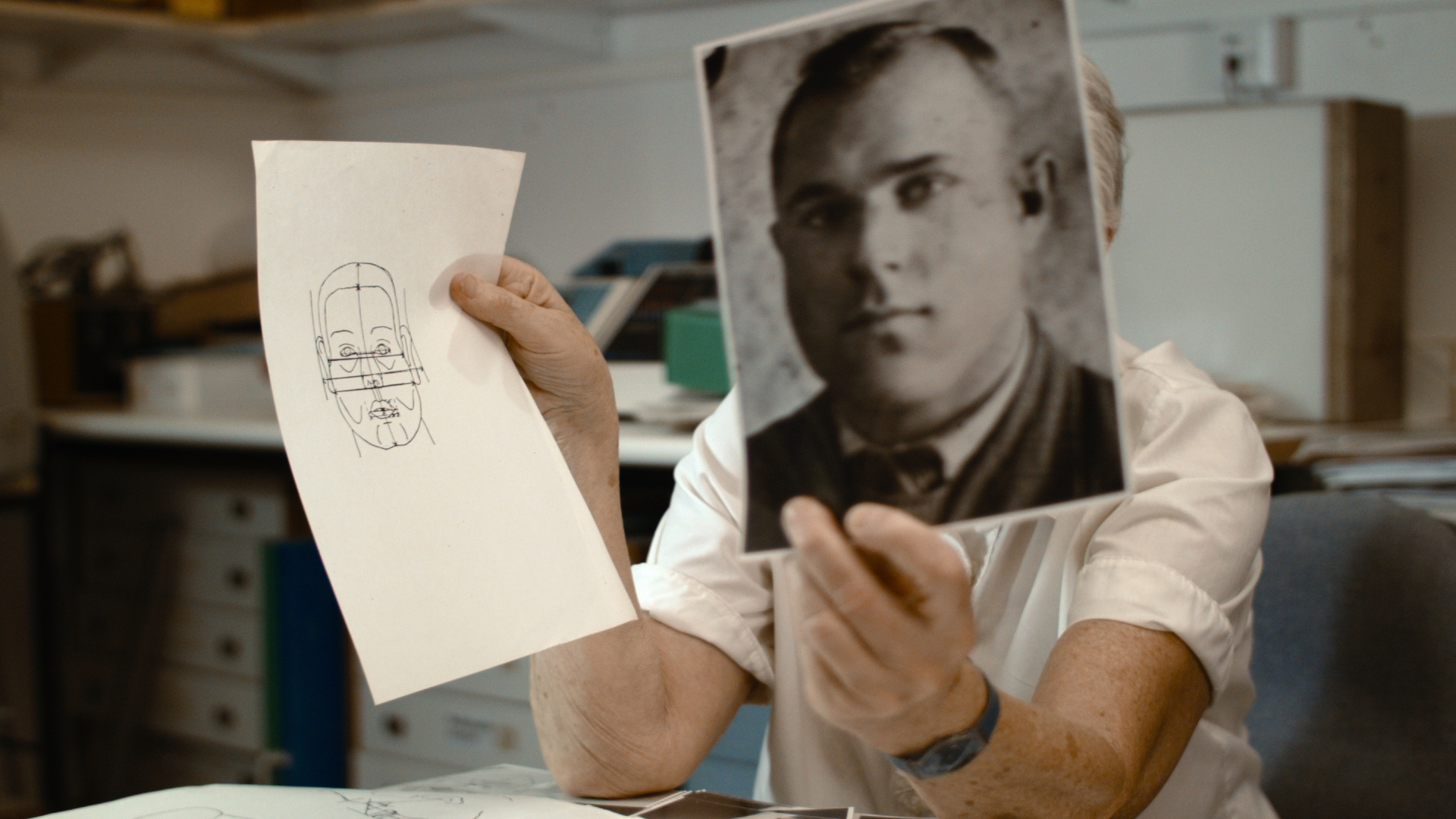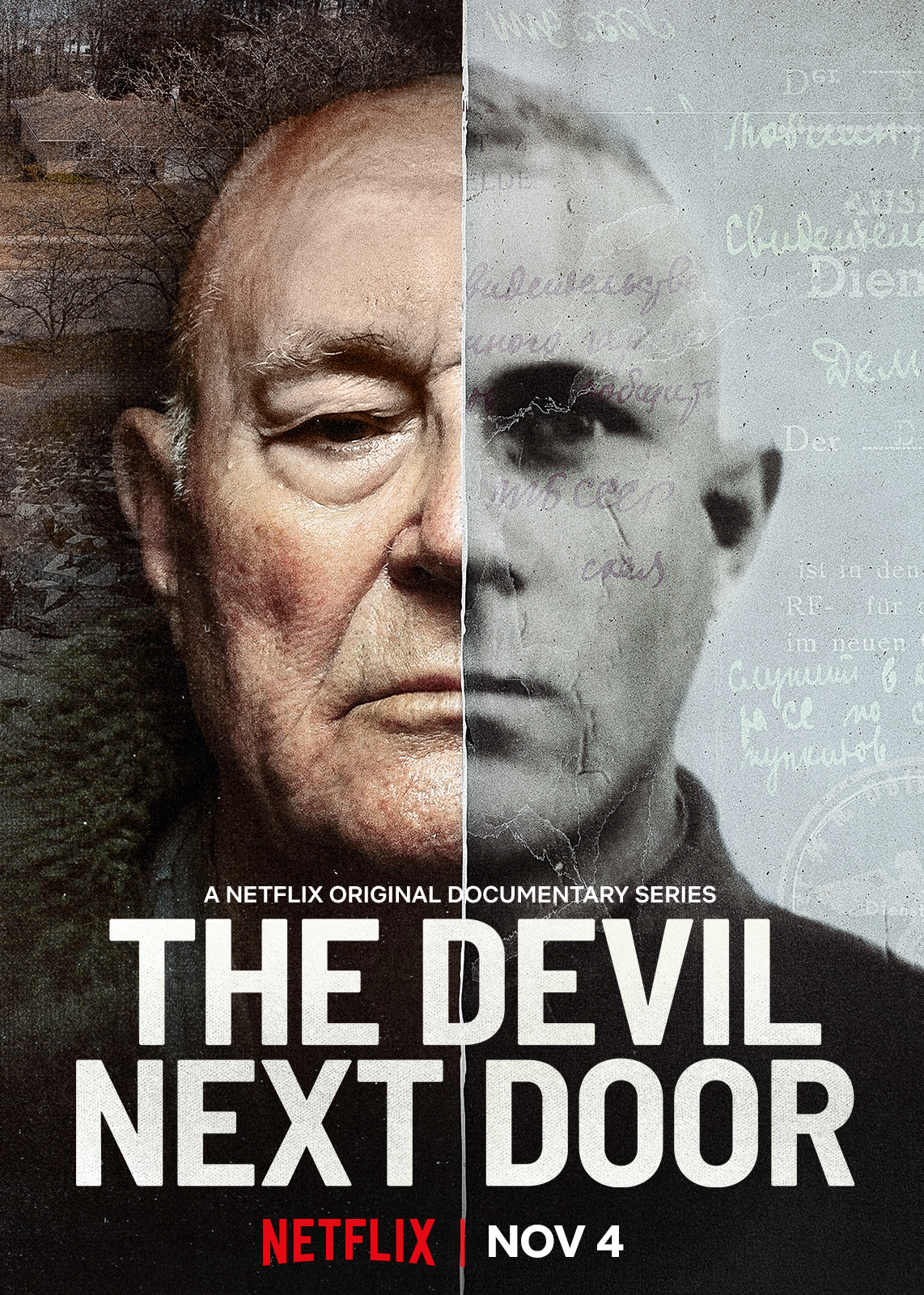 Still from “The Devil Next Door.” Photo courtesy of Netflix
Still from “The Devil Next Door.” Photo courtesy of Netflix Retired Ukrainian-born auto-worker John Demjanjuk was quietly living the American Dream in suburban Cleveland until 1986, when Holocaust survivors identified his photograph as the sadistic death camp guard known as Ivan the Terrible. Extradited to Israel for murdering tens of thousands of Polish Jews at Treblinka, Sobibor and other death camps, he stood trial in Jerusalem in the biggest war crimes case since Adolf Eichmann’s in 1961. But this time, questions about the evidence cast doubt on the proceedings that would ultimately take 25 years to resolve.
Combining devastating courtroom testimonies from Treblinka survivors, news footage and interviews with judges, journalists and lawyers, the five-part Netflix miniseries “The Devil Next Door” follows the story through its emotional twists and turns.
“The show is about these different narratives clashing, which is what makes it exciting and painful at the same time,” Daniel Sivan (“The Oslo Diaries”), who made the documentary with Yossi Bloch, told the Journal. The Tel-Aviv based directors shot more than 1,000 hours of interviews and sifted through more than 1,000 hours of archival footage, including courtroom tapes found at Yad Vashem,the Holocaust center in Jerusalem. They had the tapes restored and digitized and returned them to Yad Vashem.
Sivan, who was too young to remember the trial broadcasts and wasn’t taught about it in school, didn’t know much about the case. “For Israelis, it’s a grand fiasco. We just don’t talk about it. I learned about it by working on this show,” he said. Although he’d seen his share of painful Holocaust material before, he had to leave the room while Bloch was editing the Treblinka testimonies. “They just break me down,” he said. “I can’t cope.”
Bloch did grow up knowing about Demjanjuk and had always wanted to make a film about the case. As the son of a Holocaust survivor, it hit close to home. “My mother was born in Warsaw and grew up in the Ghetto. My grandfather had eight brothers and four sisters and each had four to six kids. My grandmother had 11 brothers and sisters and they had kids as well. They all went to Treblinka,” he said. “There should have been thousands of us.”

Sivan’s forebears were from Romania and Germany. “They escaped at the last minute, but they had a lot of relatives that didn’t,” he said. He believes that the Demjanjuk case has new relevance now. “It’s such a timely topic,” he said. “You can’t detach it from the rising anti-Semitism in the U.S. and Europe. The current administration in America gives anti-Semitism and the radical right some acceptance by looking away. Fifty percent of people in the U.S. don’t know anything about the Holocaust, and a growing movement of Holocaust deniers can slap lies on Facebook and it becomes reality. A million people died at Treblinka and all we have to show for it are the survivors’ memories and testimonies and documents. The show is our way of bringing it back to life and saying, ‘Yes, it did happen.’ In an era of fake news, it’s refreshing [to show that].”
“Whether he was Ivan the Terrible or not, [Demjanjuk] was a vicious monster that killed tens of thousands of people in many death camps in the cruelest, most barbaric way. Justice was done. But this will never be over.” —Daniel Sivan
Having access to Netflix’s 150 million subscribers worldwide, three times that when you factor in users per account, the filmmakers hope to reach and educate a younger and non-Jewish audience with the series. In Israel, Sivan is aware that the series may open old wounds. But he believes that they presented the Demjanjuk case fairly and objectively. “It’s quite a roller coaster, a turbulence of emotions, and I hope that people will watch it to the end before forming an opinion on his guilt or innocence,” he said.
“For the past three years, Yossi and I were arguing over the evidence and I’m more confused than ever because we never found that one iron-clad piece of evidence that is proof either way,” he said. “We are not judges. We cannot come to a conclusion. But I trust the survivors who identified [Demjanjuk]. Whether he was Ivan the Terrible or not, he was a vicious monster that killed tens of thousands of people in many death camps in the cruelest, most barbaric way. Justice was done. But this will never be over. There are other Nazi henchman and collaborators and supporters. We need to learn about the dangers of rising anti-Semitism, and racism and fascism toward everyone, not just Jews.”
The filmmakers, who met 10 years ago and collaborated on the military documentary “Poisoned,” have nothing else in the works — yet. “When we finish a project, we don’t want to see each other. We want to drink beer and talk about anything but film. Then in a couple of years, we start it again,” Bloch said.
“We always say, ‘The next project is going to be something fun, happy and beautiful but it always turns into the darkest most hideous project,” Sivan added. “I wish for us to find something happy for a change.”
“The Devil Next Door” is streaming now on Netflix.






















 More news and opinions than at a Shabbat dinner, right in your inbox.
More news and opinions than at a Shabbat dinner, right in your inbox.